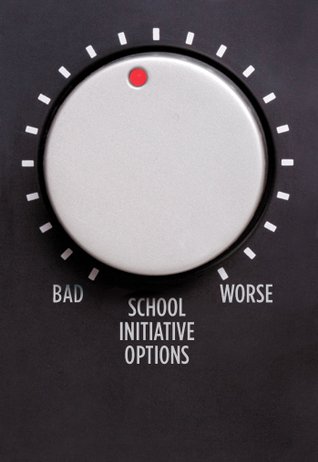
Las Vegas Sun
Wednesday, April 9, 2008 | 2 a.m.
Sun Archives
The discussions about how Nevada could reward its best teachers and offer incentives for them to stay on the job began months before the start of the 2007 Legislature.
What developed was a promising model for giving merit bonuses and other perks for performance. The school districts, with input from educators and business leaders, would be able to craft their own plans to address their specific needs. They could offer bonuses to individual teachers or to groups, and they could use career advancement opportunities and professional training as incentives.
The Legislature allocated $10 million to pay for two years of rewards, and this month the districts were supposed to be finishing their proposals and submitting them to the state for final approval and individual funding.
Instead, the performance initiative is dead in the water, torpedoed by the 4.5 percent cut to funding for K-12 education ordered by Gov. Jim Gibbons.
The choice was to either erode Nevada’s shaky level of minimum per-pupil funding for students, or cancel new initiatives and expanded programs that hadn’t been launched. The state’s superintendents opted for the latter.
The Clark County School District has been testing a version of performance incentives as part of its empowerment schools pilot program. Last year, campuses in the program awarded teachers up to 2 percent bonuses based on a variety of factors, including student test scores and parent satisfaction surveys.
The incentive program has been a useful tool, said Lisa Primas, principal of Paul Culley Elementary School, an empowerment campus.
“It wasn’t for one teacher, it wasn’t for one grade level. It was a reward for the entire school at the end of the journey,” Primas said. “It helped reinforce the message that this is the vision, these are the goals and this is how we are going to get there.”
Teachers unions have long objected to cash rewards for the highest student test scores or best job performance rating from a principal. The performance pay formula being used at Clark County’s empowerment schools was approved by the staff at each campus.
Assemblywoman Debbie Smith, D-Sparks, the lead sponsor of the performance incentives bill, said her intent was to give schools in other districts a similar opportunity.
But before that could happen, there were a variety of “factions” to satisfy, Smith said. They included the teachers and administrators unions as well as the Las Vegas Chamber of Commerce, which had become an advocate of “pay for performance” models.
It took “countless hard-fought hours” to hammer out the bill’s final language, Smith said.
“What we came up with was pretty amazing,” Smith said. “That’s why it’s so depressing that it’s not going to happen.”
The Clark County School District was gearing up for the first phase of the new program. A 15-member committee had conducted five two-hour meetings and another 20 hours of staff time had been spent on the project. Staff had planned to share the results with the School Board at Thursday’s meeting. Instead, the preliminary blueprint has been shelved.
Clark County’s plan was to make individual teachers as well as schools as a whole eligible for rewards. The bench marks were to have included improvement in student test scores as well as achievement in hitting No Child Left Behind targets.
Several other “one-shot” funding allocations have been revoked as a result of the state’s revenue shortfall — $13.6 million for additional full-day kindergarten classes, $4 million for career and technical education and $8.9 million for empowerment schools, which give principals more control over daily operations and extra per-pupil funding in exchange for greater accountability. Clark County’s empowerment schools pilot program has eight schools, but plans to add more were called off in light of the budget cuts.
None of the new statewide allocations came without a fight. Committee meetings were consumed by debate over the relative merits of full-day kindergarten programs and competing versions of empowerment school initiatives.
But in the end, “we came out of the legislative session believing we can make some progress,” said Gloria Dopf, Nevada’s deputy superintendent of curriculum and instruction.
“And now, no matter where you turn, there’s a red light,” Dopf added. “We’re supposed to get ahead and improve achievement. It’s very hard to do that when you don’t have the programs and the resources.”

Join the Discussion:
Check this out for a full explanation of our conversion to the LiveFyre commenting system and instructions on how to sign up for an account.
Full comments policy